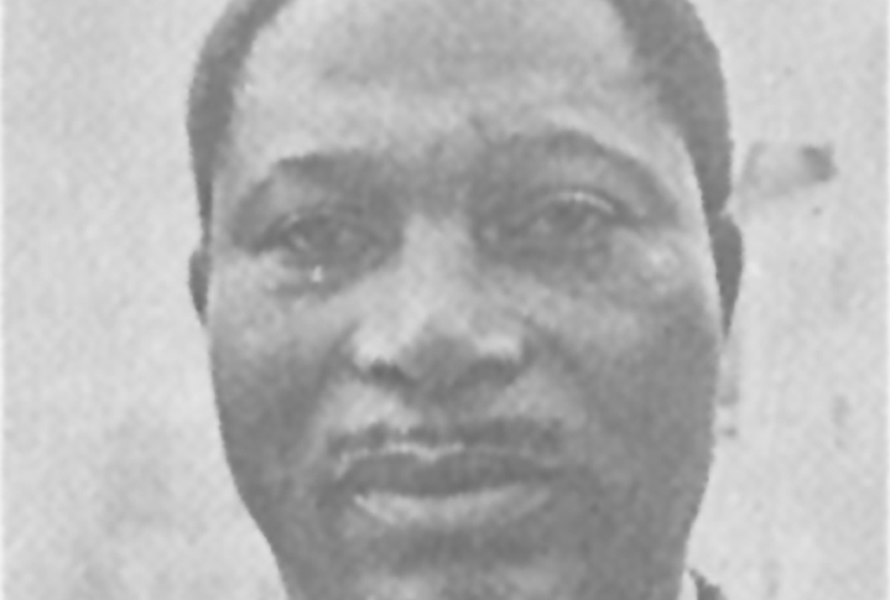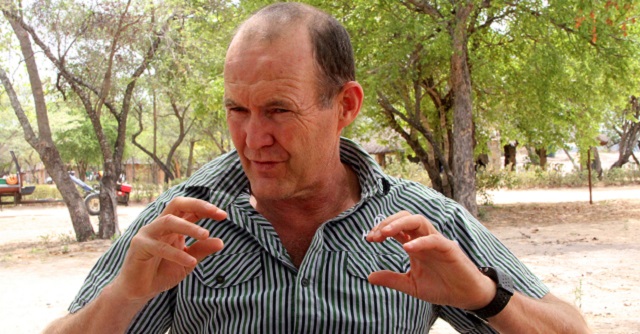
The Sunday News

Rtd Brig Abel Mazinyane
I FIRST met Jason Ziyaphapha Moyo (JZ Makhokhoba) in 1970 in Lusaka Zambia. At that time Zapu was led by James Dambadza Chikerema, George Nyandoro, TG Silundika, Edward Ndlovu and JZ. Chikerema was the leader of the five members, the Zapu National Executive.
I had heard JZ speak in one external radio broadcast in the early 1960s and I was shocked and amused by him calling, the man we all at school religiously referred to Sir Roy Welensky as sidla gwayi (the one who eats tobacco). Unfortunately I could not share this amusement with anyone.
At lunch time, everybody would go to Zimbabwe House (ZH) which was in the outskirts of Lusaka for lunch. JZ and others, who were working at Zapu offices downtown, also had their lunch at ZH.
Times were tough, political crises were kicking in, funds were frozen in banks, food was in short supply. JZ and others would come to ZH only to find sadza/isitshwala with no relish. I and other young men were tasked to go out and sell a Zapu magazine, Zimbabwe Review, on the streets of Lusaka to raise money for food. I was told that we were chosen to perform this task because one senior guerrilla who had been assigned this duty before us came back saying “mari yatorwa ne chamupupuri ndakayibata” (money was blown off my hand by a whirlwind).
JZ would wait with his isitshwala for me to come with money realised from the sale of the Zimbabwe Review for the ZH commander to buy relish. Sometimes JZ would bring mfushwa given to him by Zimbabwean farmers who sold their produce near the office, if he got dovi/idobi he considered it a delicacy.
During these lunches people discussed various topics, mostly revolution related. I remember once the issue of the “role of women after independence” was the topic.
Comrade Makhokhoba’s (as most of us called him out of earshot) contribution was that women would be part of the industrial workforce. There were a few protesting voices to JZ’s contribution. I remember comrade Magutshwa who was a strong traditionalist asked: “Who will look after the children if our wives work in industries?” To this JZ said: “There will be day care centres to look after children while mothers are at work”. Most of us found it ridiculous that our wives or wives-to-be for those of us who were not married, spend their day away from home while someone is looking after their children. That would be tantamount to turning a wife into a “MRS” (a white woman) who spends her time painting her fingernails while another woman is looking after her children. JZ painstakingly tried to explain to us the new Zimbabwe he thought we should strive to build. We shook our heads in disbelief and thinking maybe this old man has been away from Zimbabwe for too long. We had a lot to learn from this man.
When Chikerema and George Nyandoro left Zapu to form Frolizi, JZ took over to lead the party externally and also became leader of the armed wing of the party (special affairs). The remaining members of the National Executive were joined by Jane Ngwenya.
Under him (JZ) the party held a meeting in Zambia in 1971 empowered by the Zapu constitution (clause 1 section A-IV), which read in part, “To fight relentlessly for the elimination of forms of oppression . . .” and also deriving power from resolution VIII of the Cold Comfort Farm Party Congress, held on the 10th of August 1963 which stated: “The conference empowers the national leader, his executive and the People’s Caretaker Council, to engage in any efforts in Zimbabwe or abroad, which contribute towards the liberation of Zimbabwe and its people . . .”
The outcome of this meeting was the Proxy-Document. This document which got its authority from the party constitution revamped the party for the revolutionary armed struggle ahead. Zipra was born as a fully constituted organ of the party.
Given birth by the Proxy-Document also, was the Revolutionary Council. This was a council chaired by JZ as head of Zapu externally. The revolutionary council was the engine to drive the liberation struggle forward. It was a forum where scattered ideas from various departments were moulded into a concrete revolutionary strategy. Members of the revolutionary council were all members of the national executive (these were permanent as they could only be removed by the people of Zimbabwe who had elected them in a constitutionally held congress), members of the Zipra High Command, heads of party departments, party external representatives and regional commanders.
The other child of the Proxy-Document was the Conference of Militants. This was a conference held once every three years. Delegates were all members of the revolutionary council and delegates from various Zipra camps and operational bases.
This conference gave an opportunity to a Zipra soldier who was a delegate to the conference to discuss with the party leadership matters pertaining to our revolution. This empowered the soldier who was not a member of the party and made him\her a stakeholder in the armed struggle. This also provided checks and balances.
I recall during the first conference in 1973 held at Chakwenga Camp. During one debate Cde JZ called the Smith regime “a bunch of white racists” but one of the delegates, Cde Mabhuku, accused JZ of taking a racial approach. Makhokhoba withdrew these racial remarks and apologised. The man respected everyone’s opinion.
He (JZ) brought about the slogan “everything for the front”. This meant that the soldiers at the front got first priority. No tinned foods were consumed in Zimbabwe House or party houses in Lusaka unless prescribed by a doctor. To him, soldiers came first. ZH was strictly a sadza and beans zone. JZ sometimes sourced idobi/dovi or fish from Zimbabweans resident in Zambia to escape the usual beans. He code named idobi, tshebetshebe (river sand), to protect it from eavesdroppers. It was usually cooked for him by Masala or Wotshi and fish by Ben Ncube.
In 1972 when we were undergoing training in Moscow (in then USSR) together with Philimon Makonese, Matswaha, Saul Gwakuba and others. JZ came to attend the 21st congress of the communist party of the Soviet Union. At the congress he was given the honour to present the solidarity message on behalf of African Liberation movements. His message was given a standing ovation.
While still in Moscow, he negotiated that our group, that was about to complete its course, be sent to a party school for another course before returning to Zambia. The party school normally accepted candidates from parties in government. However, because JZ commanded at lot of respect from the communist party of the USSR we were afforded that rare opportunity to study at party school.
He even requested to come and spend a night with us, leaving his comfortable hotel accommodation.
JZ used to visit Zipra front bases along the Zambezi from time to time. I have several times discussed with former Zipra cadres of the risk he was taking by these daring visits. However, these visits were a morale booster to Zipra cadres that were numbering less than a hundred at the time and covering a front stretching from Kazungula to the confluence of Luangwa River and the Zambezi. Despite the odds they fought gallantly.
JZ was a man of strong self discipline. He was up early every morning to be ready to go to the office and expected everyone to do the same. He who did not do so found himself in trouble. I recall one incident when one of the unlucky members of the high command who had arrived from an assignment in the early morning hours at ZH was ordered to get into the vehicle which came to collect JZ to the office. The chief was still in his short, he took the order and was dropped about 500 metres and had to walk back in shorts and topless.
Once JZ had a meeting with Augstino Neto the president of Impla of Angola. The meeting was at an Ampla camp West of Lusaka which later became Victoria Camp of Zipra. JZ said after the meeting Neto invited him for a drink. He declined with an excuse that he did not drink alcohol during working hours. He never did. To this, Neto is said to have laughed and said: “By the way you Zimbabweans are led by bishops” (he must have been referring to Muzorewa). JZ told this with a shake of head.
ZH was attacked several times while JZ was resident there. He never left for secure residence.
JZ could provide revolutionary humour, once he challenged Chief Of Operations John Dube (JD) whose real name was Sotsha Ngwenya to hand over a hare he had hit by car returning from the front. Meat was a rare delicate relish at ZH. Makhokhoba methodically explained to JD why the hare was public property. Makhokhoba’s theory was that JD hit the hare while on a Zipra mission, driving a Zapu vehicle which actually hit the hare, hence that gave everyone a right to the hare. Who could argue with that?
To everyone present, it was now goodbye beans and hallo to hare meat. JD came up with a counter logic that while he accepted that the hare was hit with a Zapu vehicle, however, he was convinced that had the hare been a landmine no one would have asked for a share. It was an unfair comparison but it dislodged Makhokhoba. JD prepared the hare himself and at lunch he got his share of sadza, shunning the beans.
He had the delicious hare meat after all. When he sat down to eat, it turned out that the hare was saltier than the salt pans of Mali. JD had to queue for beans like everybody else. This remained one of the unsolved mysteries of the struggle.
In 1974 an incident happened at one of the Zipra operational bases near the Zambezi on the Zambian side. The incident claimed the lives of one of our comrades and Zambians. The message reached the Zipra headquarters. When this was reported to JZ he declared that he was travelling with us to the Southern province. We left Lusaka at 1am for Choma town with JZ and arrived about 5am. We had not slept a wink. After the burial, he addressed us emphasising the importance of our relations with the locals.
JZ used to visit Zipra front bases along the Zambezi from time to time. I have at several times discussed those daring visits with my former Zipra cadres. However, these visits were a morale booster to Zipra cadres that was numbering less than a hundred and covering a front stretching from Kazungula to the confluence of Luangwa River and the Zambezi. Despite that they fought gallantly despite the odds.
The government of Rhodesia had capability of raising a force of 68 000 man to fight guerrillas. This number excluded private armies like Pfumo, Revanu, Selous Scouts, TTs and others, the State was on a war footing. The white settlers were geared to fight for every inch of Rhodesia come rain come sunshine, but JZ had other ideas.
Zipra was out-gunned, outnumbered and with nothing in our coffers. Zapu had less than hundred men and women, including the top leadership outside the country.
However, this did not deter it from attacking the colonial regime. In war one attacks when he/she is out-numbering the enemy three to one and defends one. By the look of things Zipra was suicidal but it was not suicidal, it had a secret weapon in the form of JZ. He armed Zipra with a very powerful weapon, WILLPOWER; JZ had power to inspire.
When operations resumed after the lull during 1970/71 political crisis Rhodesian soldiers used to invite their spouses to bases along the Zambezi. Rhodesians would spend the day swimming and sun bathing in islands dotted along the river Zambezi. In 1973 Smith closed the Rhodesia/Zambia border in a desperate move to close out the “terrorists”. Zipra had turned paradise into hell, JZ had inspired everyone to fight like they were possessed. I remember once in 1972 when Matshimini, Daki and I were stranded in Rhodesia after completing a mission after which the enemy bombed all possible crossing points along the Zambezi. The comrades who had remained on the Zambian bank with a canoe to facilitate our crossing back to Zambia realised that their remaining at the crossing point would compromise our position. They left and hid the canoe. To cut the story short, they phoned in Lusaka to say they thought that everything had gone terribly wrong across the river. The Rhodesians were firing at every bush to flush us out into the open. JZ ordered them to bring our bodies. They then returned to the crossing point and rescued us after three days.
The effect of Detente to the two Zimbabwe liberation movements was negative. More so to Zanu because during that time they lost Chitepo and the entire Zanla command were arrested in Zambia. Zapu although its structure was intact its operations were stalled, temporarily.
JZ came to the rescue of the Zimbabwe armed struggle by putting his weight behind the formation of Zipa (Zimbabwe People’s Army). The formation of Zipa denied the Rhodesian the opportunity to re-organise and re-arm when guerrilla operations were frozen. JZ was above partisan politics, to him people of Zimbabwe came first. He even visited Mozambique in 1976 to ensure that the unity of Zipra and Zanla held.
JZ set a revolution benchmark for all of us during the armed struggle. The man lived for the struggle, he made us adopt the Cuban cry of “if you die for Zimbabwe you live for ever”. He made every Zipra cadre feel special, feel proud that he/she is putting his life on the line for the people of Zimbabwe.
He once ordered that some youngsters who had been recruited in Binga for a crush course and redeployed back into Rhodesia before they were missed, to be sent to school in Zambia.
For one to write a complete story about JZ one needs to write volumes and volumes for the world to truly understand this great man. I hope I have opened a window that will trigger curiosity from future generations to want to know more about the great revolutionary who stood shoulders above many.
His popular sayings in his remarks for consolidating peace and unity of purpose are:
- Not a minute without the movement
- Not an hour without the people
- Not a day without the struggle
- Zimbabwe must be free at all costs
JZ died on 22 January 1977.
Retired Brigadier Abel Mazinyane is a former member of the Zipra high command.



